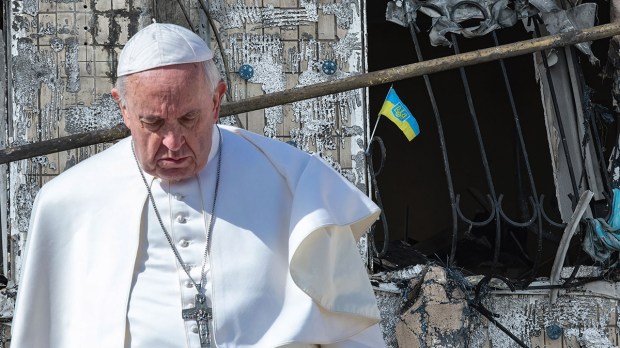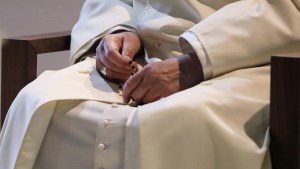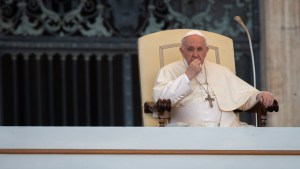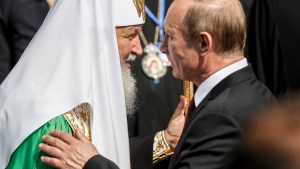While Pope Francis said in an interview a few weeks ago that a pope doesn’t normally call out a head of state by name, and less so, a specific country, an account of an interview with him published May 3 in the Italian press attributes to him some sharp statements.
The Holy Father has already made clear that he’s deeply concerned about the war in Ukraine, both because of the suffering borne by real individuals, whose dreams and livelihoods have been wrecked, and because of the repercussions for the globe with the possibility of greater escalation.
Meeting Putin
In the account of the conversation with Corriere della Sera (which also published an English-language translation), the Pope says he’s asked to meet with Russian President Putin.
About 20 days into the war, I asked [Vatican Secretary of State] Cardinal [Pietro] Parolin to convey my message to Putin, that I was ready to travel to Moscow. For sure, I was waiting for some kind of opening gesture from the Kremlin leader. We received no answer whatsoever, but we keep pressing them on this issue. I fear, however, that Putin cannot, or does not want to agree to our meeting at the moment.
But how can you not try and do whatever you can to stop the atrocities? Twenty-five years ago we saw something similar happening in Rwanda.
Corriere della Sera presents the Pope as grappling with Putin’s motives.
Maybe it was “Nato barking at Russia’s gate” that compelled Putin to unleash the invasion of Ukraine. “I have no way of telling whether his rage has been provoked,” Bergoglio wonders, “but I suspect it was maybe facilitated by the West’s attitude.”
Rebuking Kirill
According to the Italian newspaper, the Pope’s perhaps harshest words are for his fellow Christian leader, the patriarch of the Russian Orthodox Church, Kirill. While accounts of both his video meeting with Kirill and the cancellation of a face-to-face meeting between the two have already been reported, Corriere della Sera says the Pope recounted it like this:
“I spoke with Kirill for 40 minutes on Zoom. For the first 20 minutes, he read from a piece of paper he was holding in his hand all the reasons that justify the Russian invasion. I listened to him and then replied: I don’t understand any of this. Brother, we are not state clerics, we shouldn’t speak the language of politics, but rather the language of Jesus. We are shepherds of the same holy flock of God. For this reason we must look for a path to peace, we must stop the fighting. A Patriarch can’t lower himself to become Putin’s altar boy. I had a meeting with him, scheduled for June 14, in Jerusalem. It would have been our second face-to-face, nothing to do with the war. But we called it off, we agreed that it could send the wrong message.”
Arms race
The Pope has made no secret of his concern with the arms race and the way international interests are allowed to wreak havoc in the lives of ordinary people. In this conversation, he says it takes boldness to stand up to this exchange.
The production and the sale of armaments is a disgrace, but few are bold enough to stand up against it. A couple of years ago a ship docked in Genoa, it was loaded with weapons to be transferred to a cargo heading to Yemen. The dock workers refused to shift the freight to the cargo ship, saying, ‘We’re doing this for the children in Yemen.’ It was a small gesture, but for the right cause. I wish there were more people ready to step up and do something about it.
The Pope’s knee
The conversation began with a theme that has been much on the Pope’s mind: his ailing knee. The newspaper reported that the Holy Father today will begin a series of injections to try to address the issue.
“I have a torn ligament and I’ve been prescribed a series of knee injections, so we’ll see,” he tells us. “It’s been going on for some time now, I can’t walk around anymore. Once upon a time popes used to be carried around in their sedan chair. … But a bit of pain can be humbling, a blessing in disguise…”




